

 Standard Member
Standard Member
Lenvatinib Mesylate Biological Activity
Description:Lenvatinib mesylate (E7080 mesylate), an oral, multi-targeted tyrosine kinase inhibitor that inhibits VEGFR1-3, FGFR1-4, PDGFR, KIT, and RET, shows potent antitumor activities.
Target:
VEGFR1:22 nM (IC50)
VEGFR2:4 nM (IC50)
VEGFR3:5.2 nM (IC50)
FGFR1:46 nM (IC50)
FGFR2
FGFR3
FGFR4
PDGFRα:51 nM (IC50)
PDGFRβ:39 nM (IC50)
c-Kit:100 nM (IC50)
RET
In Vitro:Lenvatinib mesylate (E7080 mesylate) has IC50s of 4, 5.2, 22 nM for VEGFR2(KDR), VEGFR3(Flt-4), and VEGFR1/Flt-1, respectively. Lenvatinib inhibits PDGFRα, PDGFRβ, FGFR1, and KIT with IC50s of 51, 39, 46, 100 nM, respectively.
In Vivo:Lenvatinib mesylate (E7080 mesylate) (100 mg/kg, p.o.) is administeredand bevacizumab significantly inhibits local tumor growth at the m.f.p., and at the end of treatment, Lenvatinib mesylate also significantly inhibits metastasis to both regional lymph nodes and distant lung[3]. Lenvatinib mesylate (E7080 mesylate) inhibits the growth of H146 tumor at 30 and 100 mg/kg (BID, QDx21) in a dose-dependent manner and causes tumor regression at 100 mg/kg in H146 xenograft model. IHC analysis with anti-CD31 antibody shows that lenvatinib at 100 mg/kg decreases microvessel density more than anti-VEGF antibody and imatinib treatment.
Molecular Formula:C22H23ClN4O7S
Molecular Weight:522.959
Exact Mass:522.097595
PSA:182.80000
LogP:5.81830

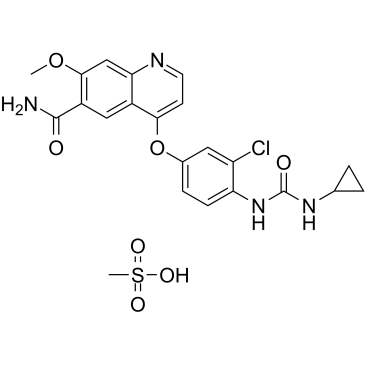
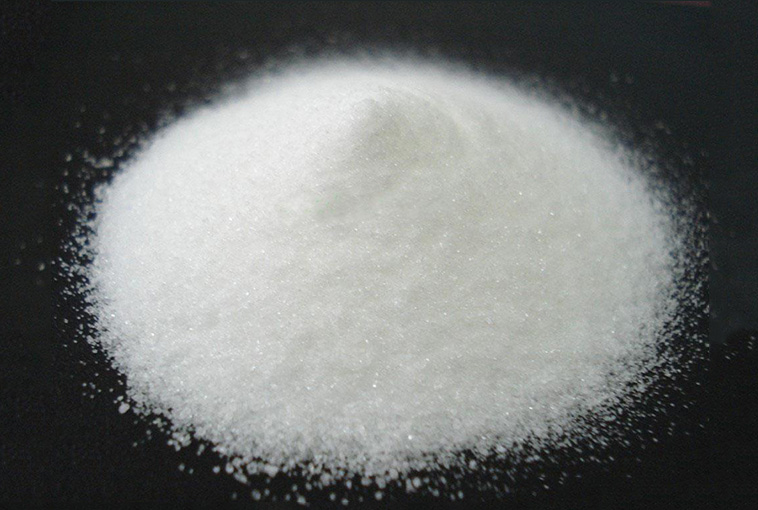
![4,5-dihydro-N-[(2-methylphenyl)methyl]-1H-Imidazol-2-amine](https://eimg.pharmasources.com/image/20230627/51NSpcxd0G7sinJFyfrPEyNTxRDSd5uE8CXRGEJ8.gif)
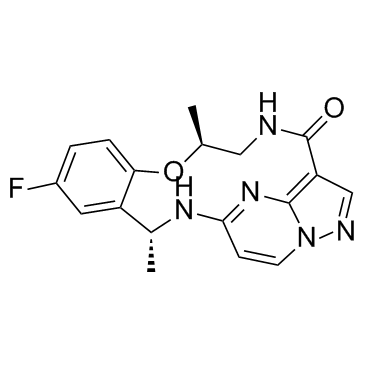
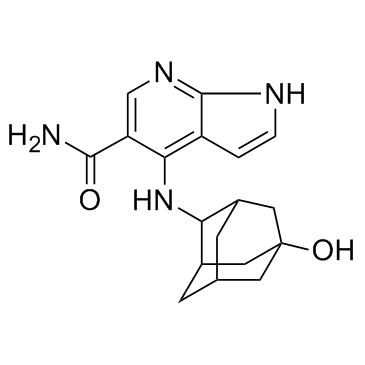
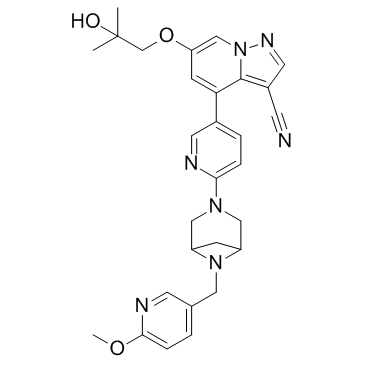
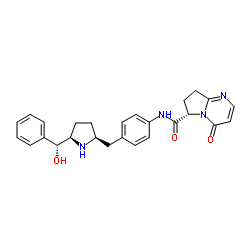
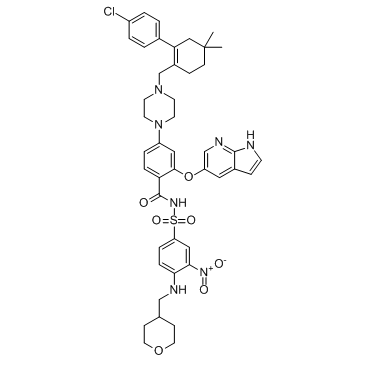
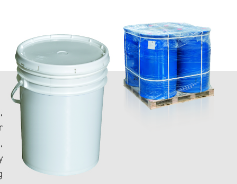
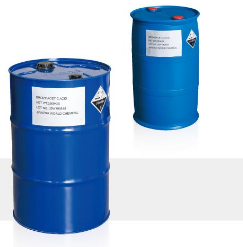
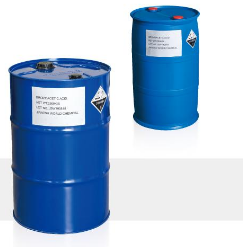
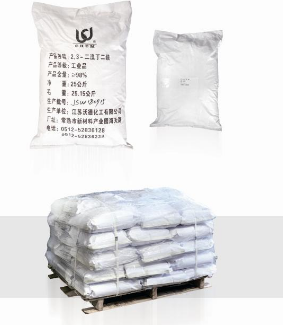
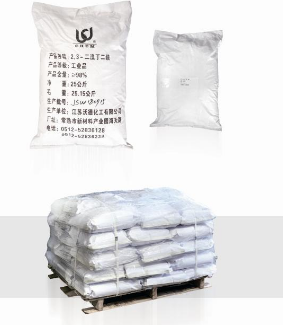
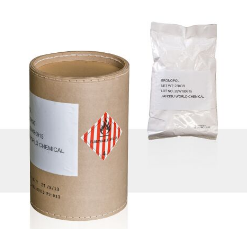
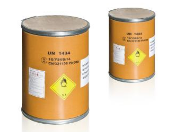














 (All Rights Reserved)
(All Rights Reserved)